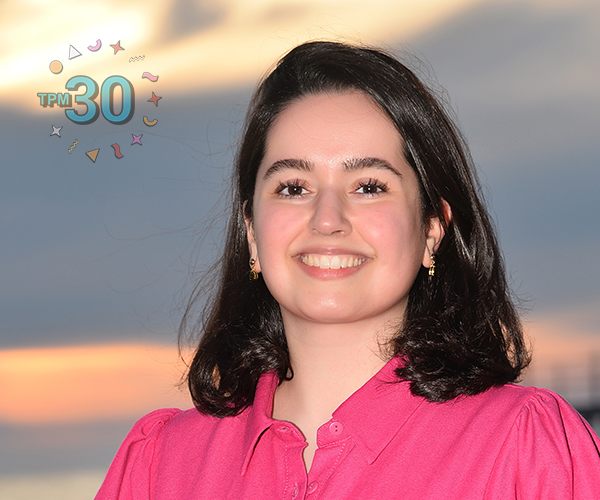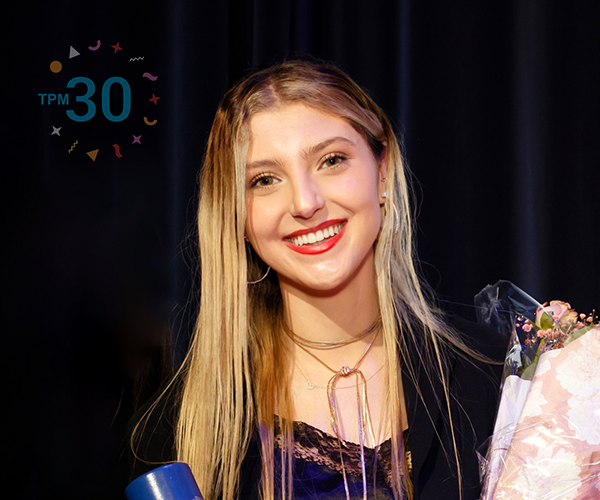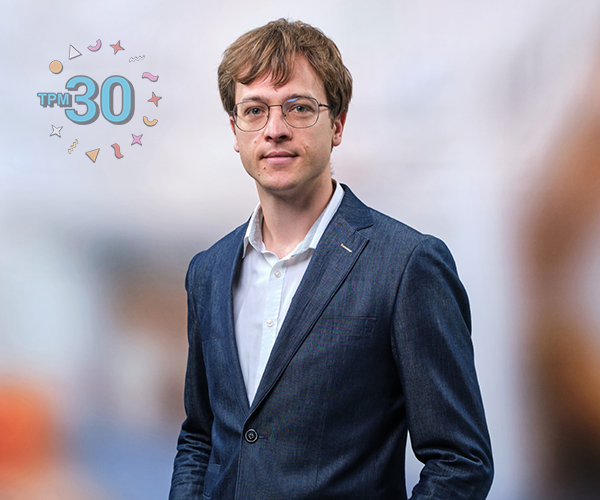TPM Portraits: Ibo van de Poel
At the end of the previous century, technology and ethics were not a self-evident combination. Today, the picture looks different, thanks in part to professor of Ethics and Technology Ibo van de Poel. Ibo and his colleagues shape research and education in ethics and technology in Delft, out of the faculty of TPM. "We used to have to convince engineers to consider moral values in their designs. Now they come to us of their own accord."
Although engineering and technology can vastly enrich the world, they also raise ethical issues. How do we approach privacy and security? What are the implications for human autonomy and employment? And to what extent can we blindly rely on technology? As a researcher, Ibo van de Poel engages in the ethical side of technology.
When Van de Poel started his studies in the late 80s, ethics was but a small field within technology. "But it was certainly up and coming then. The intersection of technology and ethics appealed to me. On the one hand, I enjoyed STEM subjects, but I was also interested in the risks and impact of technology on society. That is how I ended up doing the Philosophy of Science, Technology and Society programme at the University of Twente."
Ethics at TU Delft
When Van de Poel was working on his dissertation in the mid-90s, he happened to see a vacancy for assistant professor of Ethics and Technology at TU Delft. "They had just started offering ethics courses for several faculties in Delft. They were specifically looking for someone who could shape ethics in the Civil Engineering programme. I applied for that position, and was hired."
At the time, the field was still being developed by the independent Faculty of Philosophy and Technical Social Sciences (WTM). Since TU Delft was trying to reduce the number of faculties, WTM merged with TB (Systems Engineering, Policy Analysis and Management). Van de Poel: "Both WTM and TB had a social science and a technical component." The faculty continued under the name Technology, Policy and Management (TPM).
New opportunities and settling down
For Van de Poel, the merger came with a move to a different building. More importantly: it resulted in new opportunities for collaboration. "Technology, Policy and Management had just secured funding for a research programme on socio-technical systems. We were asked to think along from a philosophy angle. Collaborations were set up for other projects as well."
Nevertheless, the merger also took some getting used to, according to Van de Poel. "TB was founded based on a strong shared idea and with a clear mission about what the faculty should look like. At WTM, we were more of an amalgam that offered service education; we were used to doing our own thing. Suddenly, we found ourselves having to collaborate with people who had opinions and wishes of their own. Conversely, TB thought: "What are we supposed to do with these philosophers?"
Incorporating moral values at the front end
Fortunately, the slight feeling of unease in the early years did not hinder the development of his field at TU Delft. One of the aspects on which Van de Poel focuses in his research and teaching is an approach that considers moral and ethical values at an early stage in technology development.
Van de Poel: "Ethics used to be mostly an afterthought, as it were. Back then, a technology was only ethically assessed after it had been developed. Of course, by that time, it is too late. It is crucial to consider possible consequences or adverse effects at the development stage. That being said, you can never completely eliminate risks, and new issues always arise with use."
Use of Agent Based Modelling
One of the ways in which Van de Poel aims to include ethics at an early stage of technology development these days is through Agent Based Modelling (ABM). "ABM is a method that models social phenomena. It allows you to explore, for example, how certain values people have, affect the choices they make and how factors such as interaction with other people in turn influence those values."
Van de Poel cites developments in renewable energy systems in neighbourhoods as an example. "More and more neighbourhoods want to install solar panels or batteries collectively. How can we organise that properly? How do we make sure everyone benefits? What interests are at stake? If you process that data in an ABM, studying how people think, how dynamics work and how people will think differently, becomes much more sophisticated. In this way, we end up with more morally acceptable solutions and technologies."
Joining forces with other disciplines
According to Van de Poel, ethicists and philosophers do not regularly use this type of method. "Most humanities scholars have little affinity with mathematical models. They prefer to focus on what is and is not acceptable and permissible, even though ABMs can be very useful in the ethical issues we deal with. As such, I am a passionate advocate of the use of these kinds of new methods."
Van de Poel says that the combination of modelling and ethics is an excellent example of interdisciplinary collaboration, the essence of TPM. "I'm always looking out for ways to join forces with other disciplines. I really enjoy exploring new fields of research, operating on the edge, pioneering and being creative. There are so many interesting things going on in Delft. We need to make such gems much more visible and make full use of them. We should push the boundaries even more."
Strong development of ethics within technology
Van de Poel is pleased to see that ethics has now gained a prominent position within TU Delft. "When I started working here 25 years ago, hardly anyone knew what we were on about when we talked about the ethics of technology. I always had to explain what I was doing and emphasise why moral values are crucial. These days, engineers come to us asking for help. Needless to say, this is partly due to the growing presence of technology in our lives and the rise of AI which comes with many new ethical questions. The dynamics have changed completely."
The Ethics and Philosophy of Technology section of TPM has grown from four to more than 40 people including PhD students and post-doctoral researchers. Van de Poel: "In the early years in particular, we had to make a strong case for the importance of ethics in Delft. I am proud that we held our own, even if sometimes it is still quite challenging to include ethics in the various courses. Ethics should not be an add-on, but rather be integrated into the subjects themselves."
Making value-sensitive design the norm
Van de Poel says TPM's future looks bright. "There is increasing demand for what our faculty does: tackling social issues via a multidisciplinary socio-technical approach. At the same time, other educational institutions are also seeing this, which leads to more competition for the TPM programmes. The trick is to keep self-innovating, to stay distinctive."
One of the ways Van de Poel is doing just that is by further strengthening the link between his field and technical disciplines. He was recently appointed scientific director of the Delft Design for Values Institute for a period of five years. The institute brings together designers, engineers and philosophers, among others.
Van de Poel: "I still have plenty of ideas about how we can make value-sensitive design the norm. The trick is to find a method to incorporate moral values into the development of technology on an even larger scale. Hopefully, with the institute, we can make some real progress in this regard."
TPM Portraits
In the "TPM Portraits" series, we speak to TPM members right across the faculty. In celebration of TPM's 30th anniversary we have had personal conversations with people who are ( or have been) all part of the TPM community in their own way. What have they experienced within the faculty? What is TPM to them today? And how do they see the future? A new portrait appears every two weeks.





